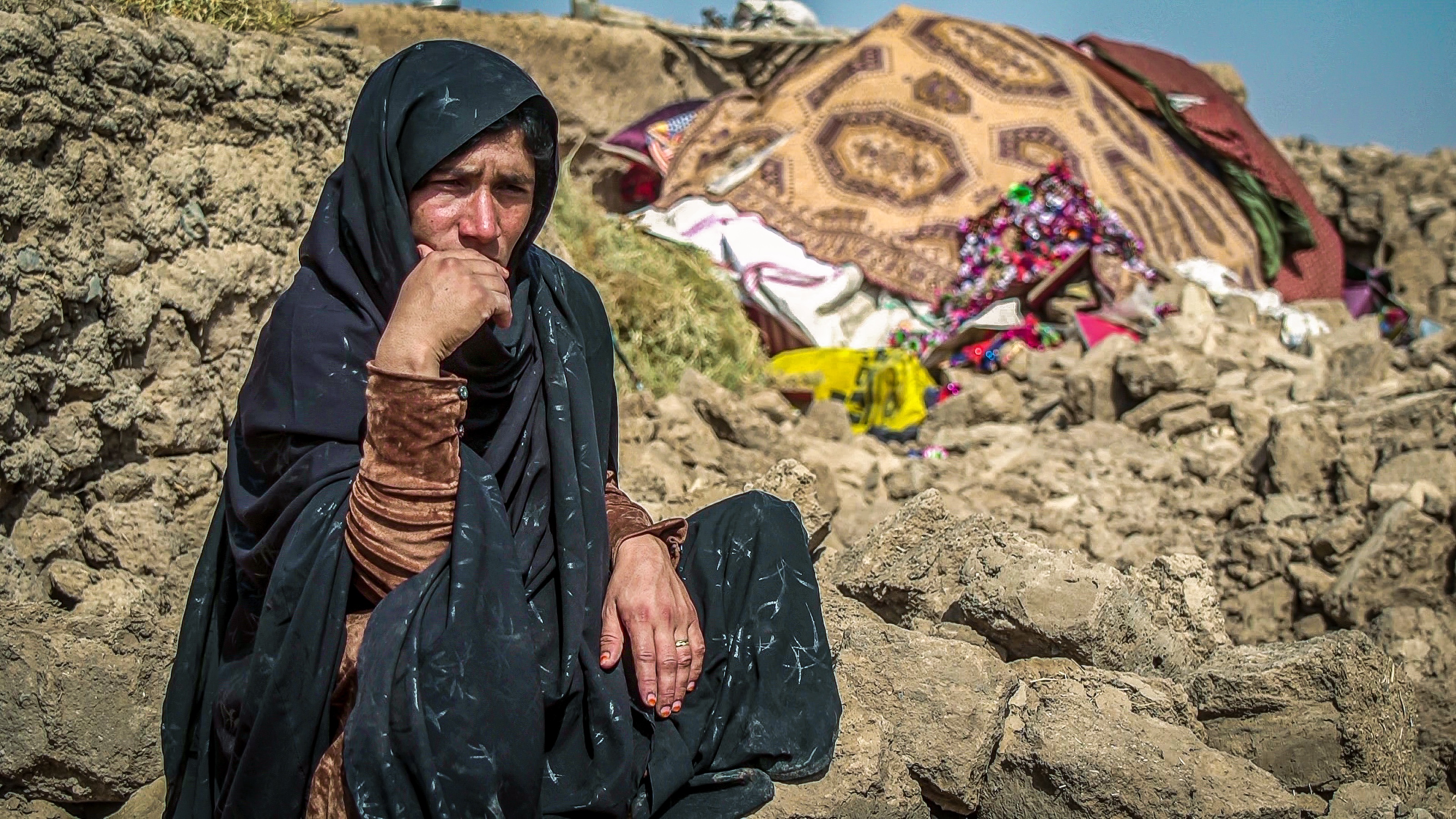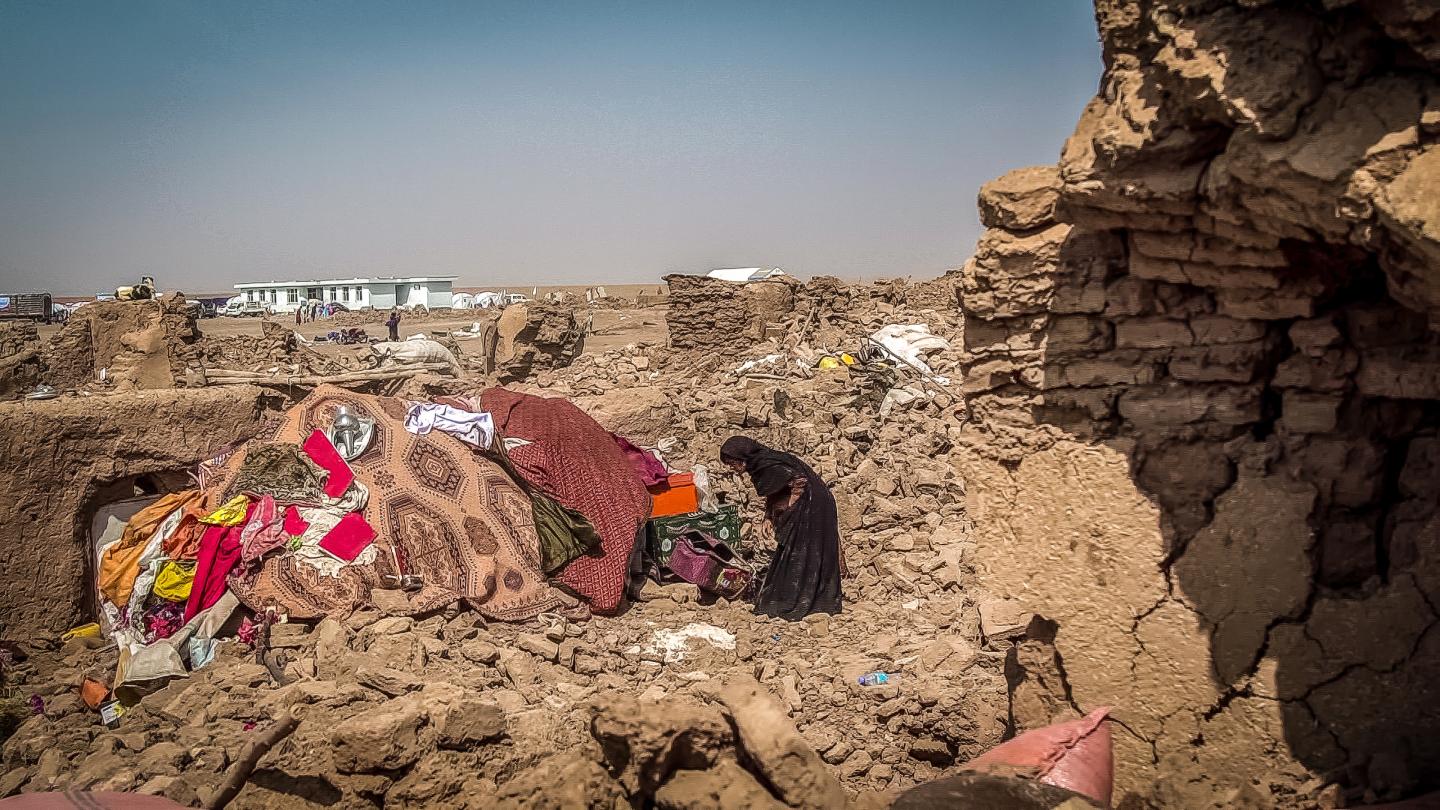Alive but all sick
December 14, 2023

Mahzada, 20, is an earthquake survivor from Naeb Rafi village of Zinda Jan district, Herat province.
Mahzada, a 20-year-old woman lived in the remote village of Naeb Rafi in Zinda Jan district of Herat province, surrounded by the vast desert that held the stories of its people. Life was simple, until a devastating earthquake struck on 7 October, destroying everything for her.
She was inside her house, preparing food, when the earth shook. Rushing outside, she found chaos. Walls crumbled, and her mother-in-law lost her life under the rubble, caught beneath a collapsed house.

“From night until the morning, our hearts are scared and trembling,” she said, revealing the sleepless nights filled with fear and uncertainty that the earthquake will hit again.
“We are alive but all sick, and we have no shelter.”
The once tight-knit community now found themselves in darkness, without lights or homes. Mahzada spoke of the hunger and thirst that gripped the children, emphasizing the desperate reality they faced.
"Our children are hungry and thirsty, there is nothing in our hands. We have nothing to give to our children," she said.
Despite the dire circumstances, she saw help coming and brought some aid to the hopeless situation. “One piece of bread and food has arrived,” said Mahzada. “They gave us 3 blankets to put on our children at night, but that is not enough.”

As Mahzada gathered some small and poor things from her ruined home, she reflected on the past. “Our lives were good, but now, as you can see, all these destructions have made us of nowhere.”
The western region of Afghanistan, where the earthquakes occurred, is already facing multiple challenges such as droughts and food insecurity.
The series of powerful earthquakes have struck western Afghanistan, mainly Herat province, leaving thousands of people homeless and in need of urgent assistance. The first quake, measuring 6.3 magnitude, struck on 7 October 2023 near Herat city, followed by several aftershocks. Four days later, another 6.3 magnitude quake hit the same area, causing more damage and casualties. The earthquakes have affected several villages across Herat Province, as well as neighbouring Badghis and Farah provinces.
According to assessments, as many as 114,000 people have been directly affected across eight districts, with many losing their homes, livestock, and civil documents. Unaccompanied minors, elderly persons, children and women-headed households are the most vulnerable groups. Like Mahzada, approximately, 90% of the affected population are women and children.
Mahzada asked for help and emphasized the urgent need for shelter “Our children, these people who are alive and injured, they want a house, they want life, they want all the help.”
“We need a house in the winter so that the children can be cared for. The wounded can heal and remain alive.”

As winter is approaching and the situation is critical, UNDP is taking urgent action to support the earthquake-affected communities by designing and constructing of safe and resilient shelters to protect displaced individuals, designing cash-for-work programmes aimed at improving livelihoods, retrofitting and solarizing schools and health centres, distribution of solar cookers, and establishing women-led community kitchens, which will play a dual role in ensuring food security and offering income generation opportunities. At the heart of these efforts is the conduct of a Post-Disaster Needs Assessment and a Household and Building Damage Assessment, a crucial step that will guide a comprehensive strategy for recovery and reconstruction.
These activities will not only help the affected communities recover from the disaster, but also enhance their resilience and preparedness for future shocks. UNDP will work closely with the local authorities, and civil society to ensure that the recovery package is inclusive, participatory, and responsive to the needs and priorities of the people.
UNDP will also coordinate with other UN agencies and humanitarian partners to ensure a coherent and effective response.

 Locations
Locations



